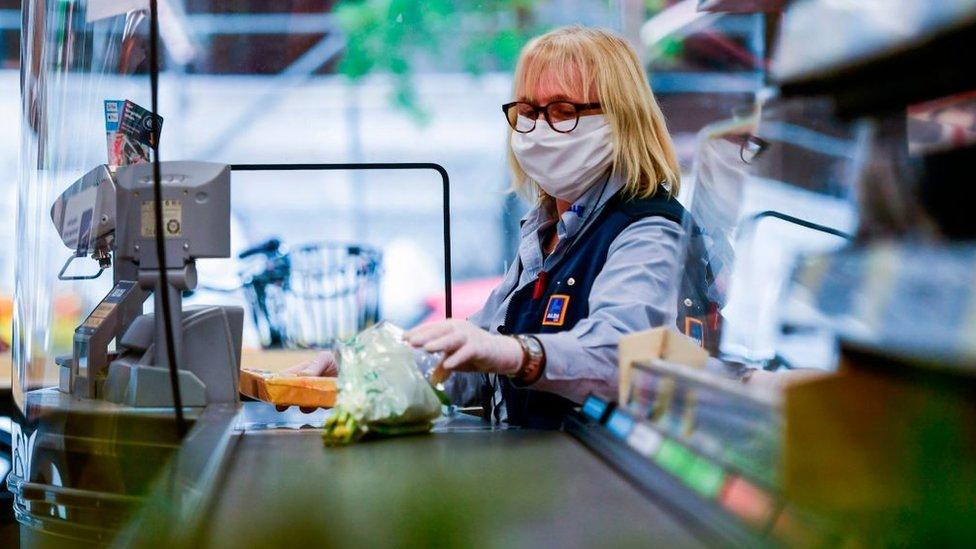Wales lockdown: Tesco 'wrong' to say period products 'not essential'
- Published
- comments
Plaid Cymru said the Welsh Government had "made a mess of the messaging" over the essential items issue
Tesco was "simply wrong" to tell a woman she could not buy period products during lockdown, Health Minister Vaughan Gething has said.
The supermarket apologised after saying it could not sell sanitary towels and tampons from a store in Cardiff.
The Welsh Government has banned the sale of non-essential items in supermarkets during a 17-day lockdown.
Opposition parties have called that "absolute madness" and said better communication was needed with shops.
The Welsh Government said revised guidance will be published on Tuesday.
Mr Gething told the Welsh Government briefing that supermarkets would now be able to use their "discretion".
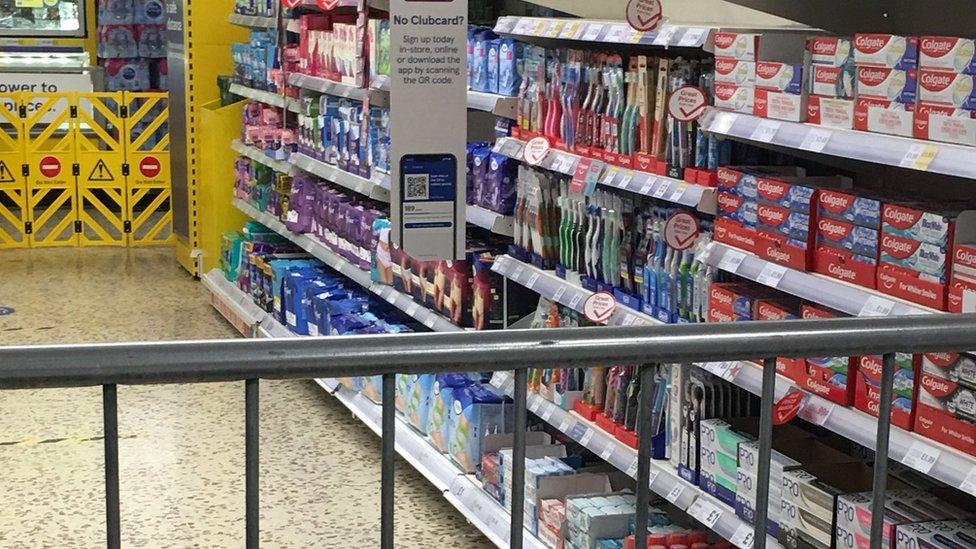
Tesco had blocked off the aisle after a "break-in" at the store in St Mellons, Cardiff
They have been told to close parts of their stores that sell items such as clothes, bedding and toys during Wales' firebreak lockdown.
Under Welsh Government guidance, shops which have been allowed to remain open are not allowed to sell goods classed as "non-essential" during the 17 days, which would normally be sold by businesses that have been made to close.
This includes homeware, electrical goods, telephones, clothes, toys and games, and garden products.
The policy has been criticised in a petition signed by more than 60,000 people.
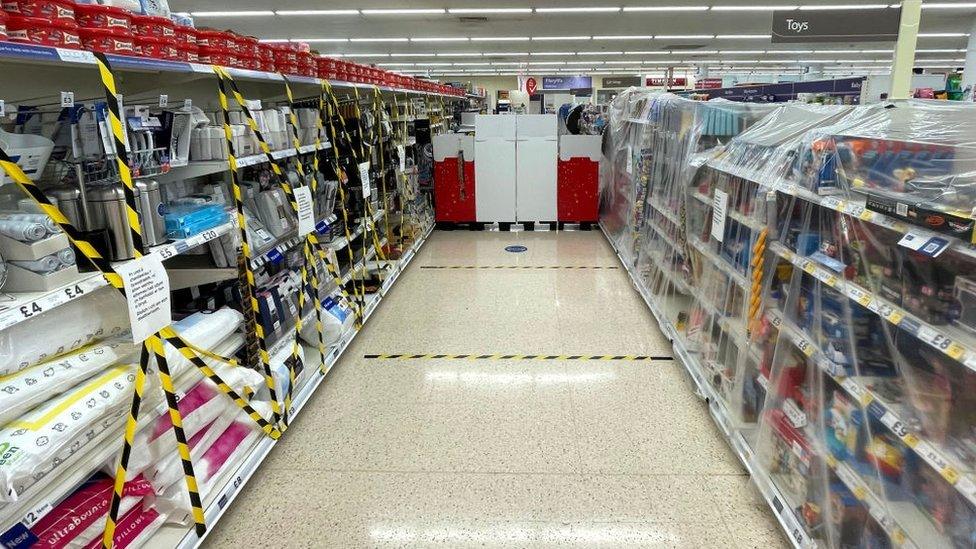
Homeware and bedding has been taped off in Tesco in Penarth, Vale of Glamorgan
One customer wrote on Twitter she was "raging and in tears" after not being able to buy period products at Tesco's St Mellons store in Cardiff, after the aisle was blocked off.
In a tweet that was later deleted, Tesco responded to the complaint by saying it had been told not to sell the items during the lockdown.
"This is wrong - period products are essential," the Welsh Government tweeted in response.
The supermarket later issued a statement saying the area had been closed off following a break-in at the store, which the police were investigating.
South Wales Police confirmed it was investigating a burglary which happened between 02:30 GMT and 04:30 on Monday when an estimated "£20,000 worth of beauty products were stolen".
Tesco said the reply to the customer, which had implied sanitary towels were non-essential, "was sent by mistake".
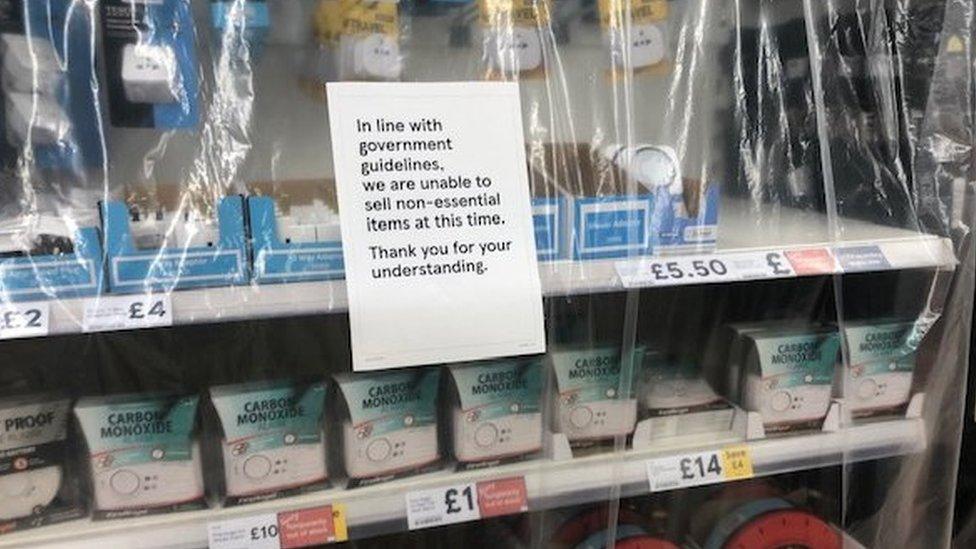
In Tesco's Penarth store, carbon Monoxide and smoke alarms were covered in sheeting
In Tesco in Penarth shelves containing smoke alarms and carbon monoxide detectors were covered in plastic sheeting, with the store putting up a sign saying they were "non essential".
But under the Welsh Government guidelines shops can sell products you can normally buy from food and drink stores, newsagents, pharmacies and DIY and hardware stores, external - as they remain open.
On Monday, Health Minister Vaughan Gething said meetings would be held with the supermarkets to make clear they could use "some discretion" to sell non-essentials to those in "genuine need".
Speaking at the Welsh Government's coronavirus briefing he said he was "very sorry" a woman had been incorrectly told she could not buy sanitary products.
Mr Gething said shoppers and retailers should use "common sense" and there would be a "very small number" of cases where there would be a genuine need to buy a non-essential item in a supermarket.
"For the great majority of us though of course, we will be able to manage for the next two weeks - with the hardship, with the interruption that causes, yes - but to avoid the much greater hardship and much greater interruption to people's lives and their ability to still see family and friends in the future," he said.
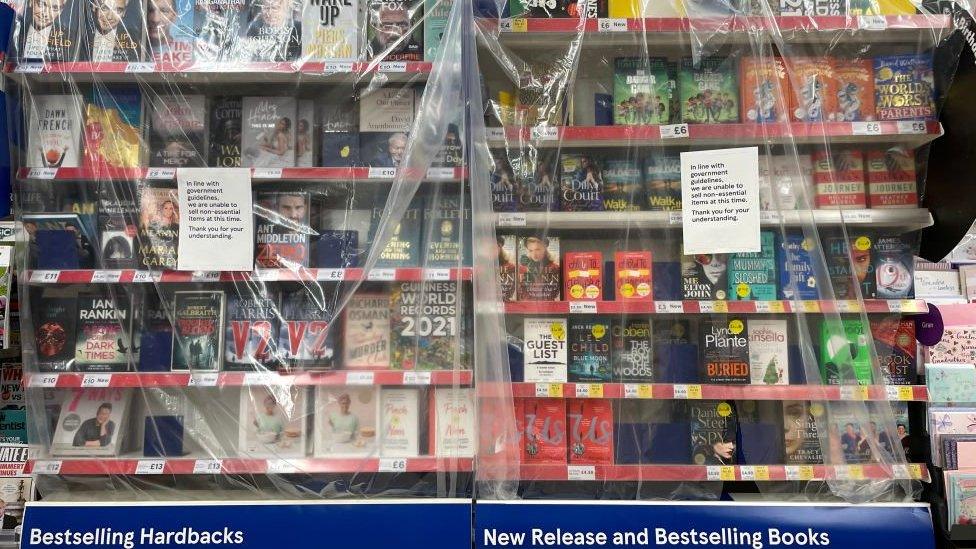
Books have been covered in cellophane
The Welsh Government has come under pressure to abandon the measure and a petition against the ban is now the largest ever submitted to the Senedd.
Secretary of State for Wales Simon Hart has urged, external Mr Drakeford to "scrap the policy" while Welsh Conservative leader Paul Davies called for Members of the Senedd to be recalled "virtually" to debate the matter.
"This is absolute madness by the Welsh Government, preventing people from buying the products which they want to buy," he said.
Plaid Cymru's leader Adam Price called on ministers to admit they had sent out confused messaging about a policy, and the public health message had got "lost".
"If they'd had the conversations with the retail sector earlier, so we heard from the minister that they had a meeting on Thursday, I would suggest that was too late," he said.
"That has eroded public trust over the weekend and obviously that is concerning because it's the public support, the public health message is ultimately the one thing that keeps us all safe."
Allow X content?
This article contains content provided by X. We ask for your permission before anything is loaded, as they may be using cookies and other technologies. You may want to read X’s cookie policy, external and privacy policy, external before accepting. To view this content choose ‘accept and continue’.

Tim Batcup, who has had to close his Swansea book shop during the lockdown, said the Welsh Government had made the "right call".
But he said that while some supermarkets had stopped selling books, others were still selling them, and the messaging was a "bit mixed".
"I don't really understand the fuss... I don't know why people can't go a couple of weeks without a pair or pants or a candle," he told BBC Radio Wales Breakfast.
"I think it's a sincere attempt at levelling up, how effective it will be I don't know. It might drive people towards the online giants, but they all seem to clean up anyway."
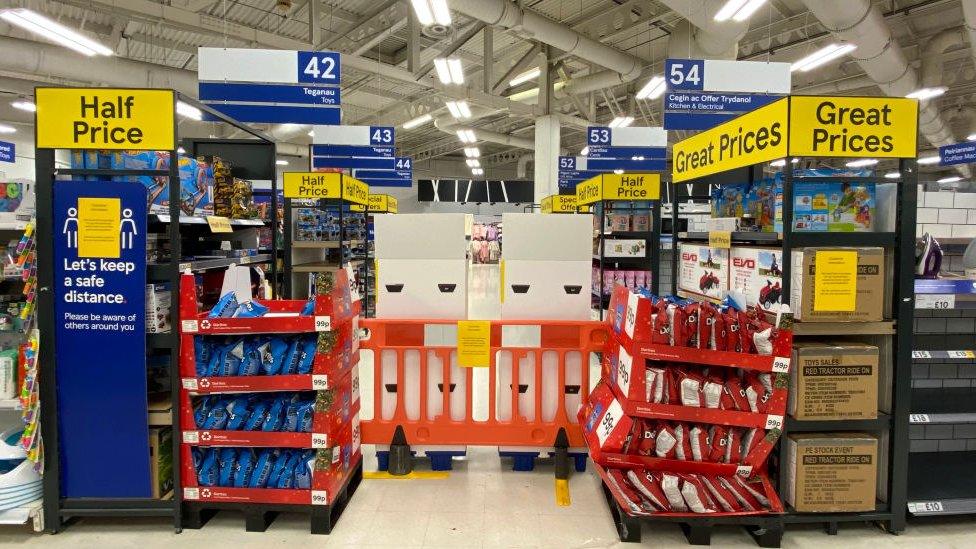
The toy aisle at Tesco on Western Avenue in Cardiff has been blocked off
Nicky Small, who has had to close her craft shop in Llandudno, said she believed wool and other craft items were essential as the hobbies were helping many through the pandemic.
"I think there's a balance, what is one person's non-essential could be another person's essential," she said.
"The difficulty is anybody trying to dictate what essential is, because that will depend on who you are, what you are needing to get, if you have been waiting for payday."
Head of the Welsh Retail Consortium, Sara Jones, said the rules were confusing, and banning people from buying certain items set a dangerous precedent.
"I think this policy is the wrong way to go about it, because rather than levelling the playing field, it's just creating winners and losers, it's pushing people online," she said.
She said allowing an element of discretion would go against the purpose of the policy, as people would have to approach staff for items and spend more time in store.
"It's distorting competition, which I think is setting a bit of a dangerous precedent," she said.
- Published25 October 2020
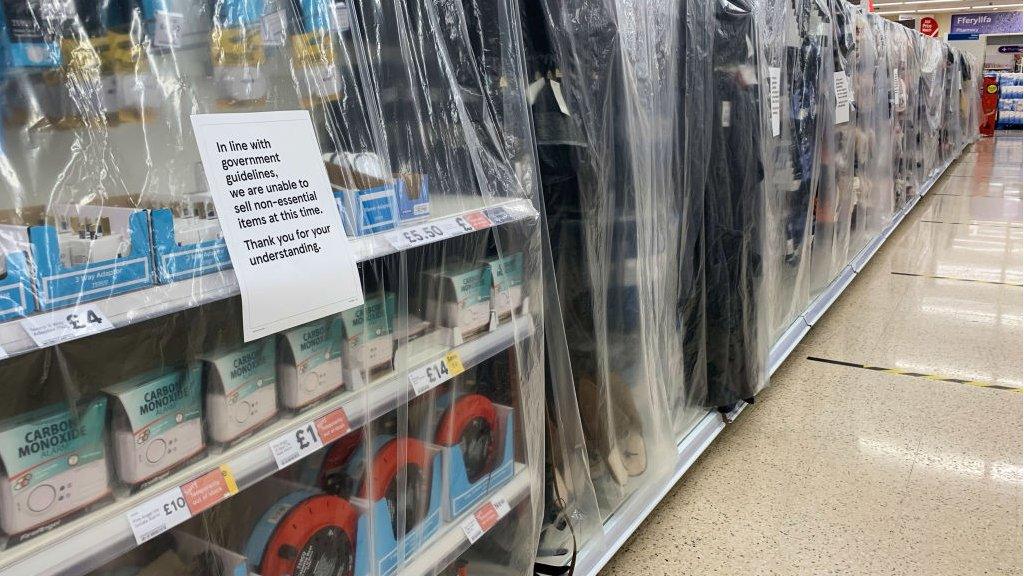
- Published23 October 2020
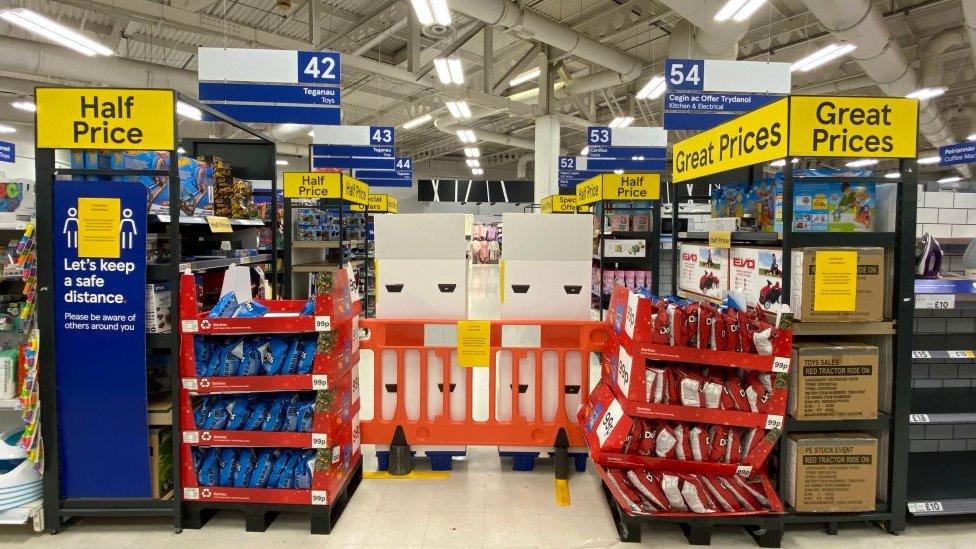
- Published22 October 2020
